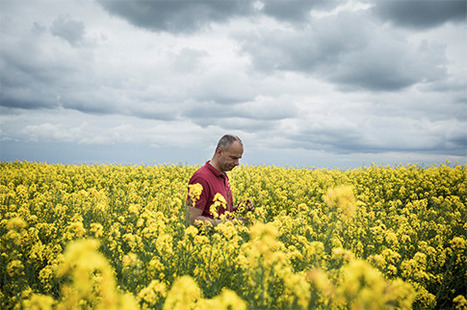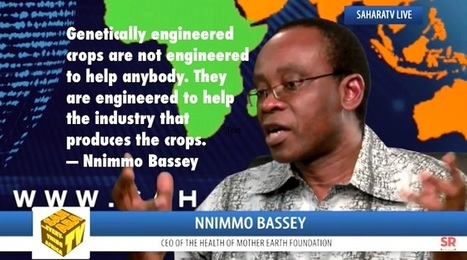Arnaud Rousseau, a sixth-generation farmer in France, in a field of rapeseed. Twenty years ago, Europe largely rejected genetic modification at the same time the United States and Canada were embracing it. Credit: Ed Alcock for The New York Times
Higher yields with less pesticides was the sales pitch for genetically modified seeds. But that has not proved to be the outcome in the United States.
... an extensive examination by The New York Times indicates that the debate has missed a more basic problem — genetic modification in the United States and Canada has not accelerated increases in crop yields or led to an overall reduction in the use of chemical pesticides.
The promise of genetic modification was twofold: By making crops immune to the effects of weedkillers and inherently resistant to many pests, they would grow so robustly that they would become indispensable to feeding the world’s growing population, while also requiring fewer applications of sprayed pesticides.
Twenty years ago, Europe largely rejected genetic modification at the same time the United States and Canada were embracing it. Comparing results on the two continents, using independent data as well as academic and industry research, shows how the technology has fallen short of the promise...



 Your new post is loading...
Your new post is loading...










This article in the New York Times, they also call it "the paper of record", signifies an important change in policy - GMOs are not the best thing since sliced bread after all, and this is coming right out of "the horse's mouth" ... not because of health effects, which are still denied, but because GMOs do not make commercial sense. The empty promises of increased yield and of cutting the use of poisonous agrochemicals are catching up with them.
What definitely helped bring about this important change of mind seems to have been the recent sale of Monsanto, a US corporation, to Bayer, a German one which, together with the Swiss chemical giant Syngenta will likely form the largest agro-chem conglomerate on the planet, and it won't be located in the United States...